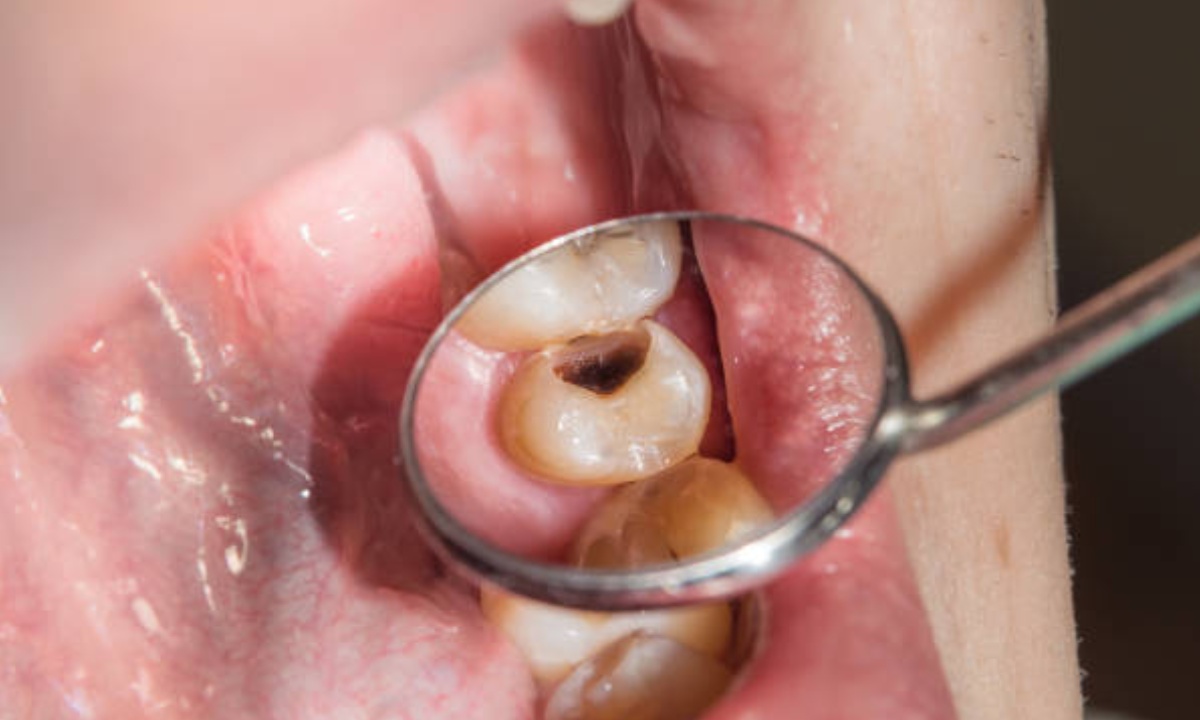Tooth decay is one of the most common dental problems people face across all age groups. Despite advancements in dental care, millions of people still suffer from decayed teeth, leading to discomfort and even tooth loss if left untreated. While the primary cause of tooth decay is poor oral hygiene, factors such as diet, genetics, and certain health conditions can also play significant roles. In this article, we’ll explore the causes of tooth decay, prevention strategies, and why visiting a dentist in Whitefield can help maintain good oral health.
Causes of Tooth Decay
Tooth decay, also known as dental caries or cavities, occurs when the enamel – the outer layer of the tooth is damaged. Bacteria in the mouth feed on sugars and starches from food particles, producing acid as a byproduct. This acid slowly erodes the enamel, leading to cavities. Common causes of tooth decay are:
Poor Oral Hygiene: One of the leading causes of tooth decay is inadequate cleaning of the teeth. If food particles and plaque are not removed through regular brushing and flossing, they provide a breeding ground for bacteria that can cause cavities.
Dietary Habits: Consuming sugary foods and beverages contributes significantly to tooth decay. Bacteria thrive on sugars, and the acid they produce leads to enamel breakdown.
Dry Mouth: Saliva plays a crucial role in neutralizing acids in the mouth and washing away food particles. A condition called dry mouth reduces saliva production, which can increase the risk of decay.
Genetic Factors: Some people are genetically predisposed to have softer enamel, which is more prone to decay. Genetics can also influence the shape of your teeth, making it easier for food to get trapped and cause cavities.
2. Prevention of Tooth Decay
Prevention of tooth decay requires consistent and effective oral hygiene practices. With the right habits, tooth decay can be avoided, and you can maintain a healthy, bright smile for years to come.
Regular Brushing and Flossing: Brushing your teeth twice a day and flossing once daily can help remove food particles and plaque. Using fluoride toothpaste strengthens the enamel and makes it more resistant to acid attacks.
Teeth Cleaning: Professional teeth cleaning by a dentist in Whitefield should be part of your oral care routine. Dentists use specialized tools to remove hardened plaque (tartar) that cannot be eliminated through brushing alone.
Balanced Diet: Limiting sugary foods and drinks can significantly reduce your risk of developing cavities. Opt for a balanced diet rich in fruits, vegetables, and dairy products, which are beneficial for your teeth.
Stay Hydrated: Drinking water throughout the day helps keep your mouth moist and increases saliva production, which is crucial for protecting your teeth from decay.
3. Role of Professional Dental Care
Regular visits to the dentist in Whitefield can help detect early signs of tooth decay before they worsen. Dentists can recommend various treatments depending on the severity of the decay.
Dental Sealants: Sealants are a preventive treatment often applied to the back teeth (molars) where food can easily get stuck. They act as a protective barrier against bacteria and acids.
Fluoride Treatments: In-office fluoride treatments can be applied to strengthen tooth enamel and reverse early signs of decay.
Fillings: If a cavity has already formed, your dentist can remove the decayed portion of the tooth and fill it with a material like composite resin, amalgam, or porcelain.
4. When to Visit a Dentist
To maintain good oral health, it’s crucial to schedule regular dental check-ups, ideally every six months. If you notice any signs of tooth decay, such as sensitivity to hot or cold foods, toothache, or visible holes in your teeth, it’s essential to consult a dentist immediately. A dentist near you can assess the severity of the problem and recommend suitable treatments.
Some specific reasons to visit your dentist include:
Pain or Sensitivity: If you experience tooth pain, especially when consuming hot, cold, or sweet foods, it may indicate the presence of decay. A timely visit to the dentist can prevent the condition from worsening.
Visible Holes or Spots on Teeth: Any visible holes or dark spots on your teeth are signs of advanced decay. A dentist can help by providing treatment options to restore the affected tooth.
Bad Breath or Taste: Persistent bad breath or an unusual taste in your mouth could be symptoms of decaying teeth or gum disease. A professional cleaning or additional treatments may be necessary.
5. How Teeth Cleaning Can Protect Against Decay
While brushing and flossing are essential components of good oral hygiene, professional teeth cleaning takes it a step further by removing plaque and tartar build-up in hard-to-reach areas. A visit to a dental clinic in Whitefield for teeth cleaning offers several benefits:
Plaque and Tartar Removal: Tartar is hardened plaque that forms when plaque is not removed properly through regular brushing. Only professional cleaning tools can effectively eliminate tartar, especially from the gum line.
Polishing the Teeth: After plaque and tartar are removed, the dentist will polish your teeth, which helps smooth the surface of the enamel. Polishing also helps remove any stains, leaving you with a brighter smile.
Detection of Other Issues: Routine cleanings give your dentist a chance to check for other dental problems, such as gum disease, oral cancer, or potential tooth decay that you may not have noticed.
6. The Importance of Preventative Care
Preventing tooth decay involves more than just brushing and flossing. It’s about taking a comprehensive approach to your dental health, which includes diet, hydration, regular check-ups, and professional teeth cleaning.
Oral Hygiene Habits: Develop a consistent oral care routine, including brushing for at least two minutes twice a day and flossing regularly.
Regular Dentist Visits: Scheduling regular appointments with a dentist in Whitefield ensures that your teeth are professionally cleaned and any potential issues are caught early.
Healthy Lifestyle Choices: Staying hydrated, eating a balanced diet, and avoiding excessive sugar consumption are all key steps in preventing tooth decay.
Conclusion
Tooth decay is a preventable dental issue that can cause long-term problems if ignored. By practicing good oral hygiene, maintaining a healthy diet, and visiting a dentist in Whitefield for regular check-ups and professional teeth cleaning, you can protect your teeth and keep your smile healthy. Early intervention is crucial, so if you suspect tooth decay, don’t delay a visit to your dentist.
Growing Smile Dentists is a well-known dental clinic in Whitefield that offers pediatric dentistry. Many parents are happy with the friendly and caring service offered and good online reviews praising the doctor’s patience and attention to child comfort.


